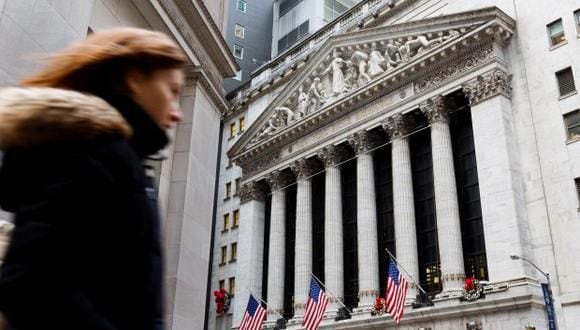
Prices have risen at the fastest rate in decades, but we haven’t had a debate about the inflation. We have had five. We could do a better job of analyzing problems if we distinguish between them.
The first debate concerns the magnitude of current inflation: how long it will last and how high it will go.
It started last spring, when some economists raised the alarm that we are likely to see the highest inflation in a generation. Others argued first that inflation would remain moderate and then that it would be “transitory.” Now it has stayed high long enough for the president of the Federal Reserve, Jerome Powell, has eliminated the use of that qualifier.
How damaging this inflation can be has sparked a second debate. Optimists have claimed that it will help many, perhaps most Americans, because it allows borrowers to repay their loans with devalued dollars. The pessimists, who have public opinion on their side, have emphasized that the real value of wages has fallen in the last year.
Debate number three addresses what is behind inflation. Some politicians and activists point to corporate greed and growing business concentration. But those factors don’t explain it: Business concentration didn’t drop for four decades starting in the 1980s and then spiked last year, and it’s also not hard to believe that greed followed that pattern. The most serious dispute concerns the extent to which disturbances arising from the COVID-19 They have caused higher prices and to what extent they have caused the overstimulation of the economy. In other words, how much of the problem is “supply” and how much is “demand”?
This debate quickly leads to the fourth: what should we do to combat inflation? Among the solutions offered: slowing down the Fed’s asset purchase, raising interest rates, cutting regulations to address shortages, restricting federal spending and, this is the favorite of corporate greed theorists, imposing price controls. .
And from there we move on to the fifth: how much of this is the president’s fault? Joe Biden?
All these debates are obviously related. Calculating how much damage inflation has done depends, for example, on what’s causing it: Supply-side inflation should not be expected to help borrowers or that the Fed can easily offset it. But mixing these topics can lead to errors.
Biden’s supporters have sometimes cited supply chain disruptions as a way of denying that inflation is his fault. His opponents often prefer to focus on flexible fiscal policy, making his guilt clear. But this way of looking at problems is just a groove into which we have fallen.
Today’s inflation may be largely a supply problem, and at the same time, Biden should be doing more to address it. Eliminating the Jones Act, which makes freight more expensive, would be a start, and waiving it is entirely within the powers of the president.
Biden’s spending isn’t just a demand issue, either. When critics say that covid relief money made it easier for people to stay out of work, they are talking about an effect on supply.
When I say that “we” should distinguish between the questions this inflation raises, I include myself broadly. Last spring, he was skeptical that fiscal and monetary policy were dangerously lax in a way that posed the risk of high inflation.
Previous predictions in this regard, such as those made after the Great Recession a decade ago, had not come true. The speed with which money changed hands remained low. Market inflation expectations for the next five to ten years remained close to or below the Fed’s target.
I would still keep most of what I wrote then. At the end of the year, monetary policy seems too lax, judging by the gap between the real levels of spending across the economy and their expected levels.
However, I was wrong to think that therefore we should not worry about inflation. (“Stop Worrying About Inflation” was the headline of an op-ed I co-wrote in February. Wow!). The inflation warnings I was discussing weren’t focused on supply chains, so neither did I. But the supply shortage turned out to be crucial, and then more persistent than I initially assumed.
We would make the opposite mistake if we assumed that because those who favor restrictive measures to combat inflation were right in the first two debates, they got everything else right as well. So far, the fear that higher inflationary expectations will take on a life of their own has not materialized: bond markets continue to price in inflation close to 2% over the next decade.
If we are lucky – and after underestimating inflation in 2021, luck is important – a year from now all these debates will seem less important.
.
Ricardo is a renowned author and journalist, known for his exceptional writing on top-news stories. He currently works as a writer at the 247 News Agency, where he is known for his ability to deliver breaking news and insightful analysis on the most pressing issues of the day.











